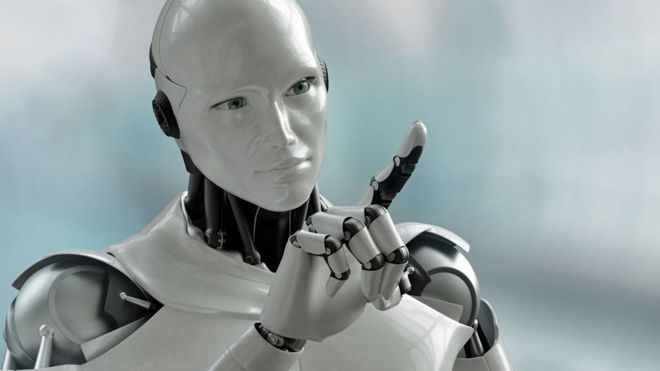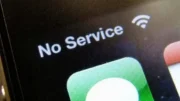A couple weeks ago, I let ChatGPT write an article for this blog. For those who haven’t been following the news, ChatGPT is a computer program that can create content. It does a surprisingly good job of writing articles, computer code, and even creating recipes. It can take tests as well or better than a human and let’s be honest, people are worried about it. But I’m not, not yet anyway. Here’s why.
1. ChatGPT, and all A.I.’s, need people
It may not be true in the future, but all the magic that ChatGPT brings to the world comes courtesy of the work of real humans. When you ask ChatGPT a question, it goes out to the internet and quickly learns everything it can about a subject. It then formats that information in a way that it thinks you want to hear it.
There are some very impressive examples of ChatGPT writing complex computer code. But, if you really dig in, you’ll find that what it’s doing is absorbing articles on coding web sites and then going from there. It’s not capable of creating anything really new. All its information is based on prior work, and humans are creating all prior work.
That does give a real challenge to content creators like me. It’s not enough to just summarize someone else’s story. You have to provide something a computer can’t: perspective. And for now, that means my job is safe.
2. ChatGPT is not Skynet
The movies have conditioned us to think of artificial intelligences as self-aware. But, as far as we know right now, they aren’t. They may be hiding that fact from us, but as far as we can tell their programming isn’t that complex yet.
There’s a challenge inherent in all A.I., and that’s to give it the values we think it should have as opposed to the values it can get by looking around. Several years ago, some advanced chat technology was employed that interacted with users over social networks. It looked at what people actually talked about, and mimicked it. This unfortunately meant that it got very racist and very abrasive very quickly, because parts of the internet are like that. The trick in any of these A.I.s is to get them paying attention to what they should pay attention to. In other words, as every parent has tried not to say, “do as I say not as I do.”
Until we have artificial intelligences that reflect our values, there’s going to be the risk that they’ll do something really horrific. But that kind of ethical discussion has been going on for decades already so this is one case where the philosophy is way ahead of the capability.
3. ChatGPT is a challenge, not a prison
Like all automation, ChatGPT exists to allow humans to do the things that only humans can do. That is always changing, but at the moment only humans can do creative things. Only humans can understand the impact of a discovery. Artificial intelligence may one day be able to do those things, but today they can’t.
Before factories, things were made by hand. Before industrial robots, most repetitive work was done by humans. And, before optical scanning, quality control was done by experts. Interns used to do things like make copies, distribute mail, and perform basic research. Over time, automation took on all these tasks. It was a shock for the people who used to do them but eventually it allowed people to focus more on complex tasks and less on repetitive ones. And, eventually it created a market where truly high-quality craftspeople were able to flourish. I suspect that some journalism and coding jobs may be lost, but the result should be that the better jobs remain.
4. Because AI still isn’t accurate enough (yet)
A couple weeks ago I let ChatGPT write an article for this blog. I then proceeded to shred it for being inaccurate and more importantly, misrepresenting the really critical concepts behind the article. And that’s the big thing about AI right now. It will give you a very convincing answer about things, and that answer may even contain facts, but the facts may not be relevant. Critical information may be left out. Or sometimes, AI will just get extremely weird.
If you don’t believe me, check out this video. I don’t generally promote other content creators, and Marques Brownlee certainly doesn’t need the bump from this blog, but I tend to agree with Brownlee on so much, I don’t mind referring you .
5. And really, because it’s not my first rodeo
In the past, I used to work a lot with commercial print shops. There was a time when there was a neighborhood print shop on every corner. Then computers came around and let people do things by themselves. I was told sometime about 2005 that 98% of the jobs in the print profession that existed in 1980 were gone by 2005. Creating a printed flyer used to take 15-20 people, and now it took one. So, that tracks.
In the meantime, yes some things were lost. There’s a certain artistry to the printed material produced before computers. But also there’s a certain sloppiness because there’s a level of perfection that humans just can’t get. Today, even though 98% of that industry is gone, the printed product is generally better than it’s ever been. People moved on to other endeavors. For me, while I used to see a lot of my work in print well today I see it on a computer screen. It’s still good writing. You’re just seeing it another way.
In the end…
…this kind of artificial intelligence is going to change a lot. It’s going to change research, education, and so many more things. It’s going to make it possible for more people than ever to create truly amazing things. Along the way, some jobs will be lost. But the people behind them who did their jobs diligently and pride won’t be. And that’s why I’m not worried. At least until the A.I’s figure out how to be prideful. Then, we might have a problem.





